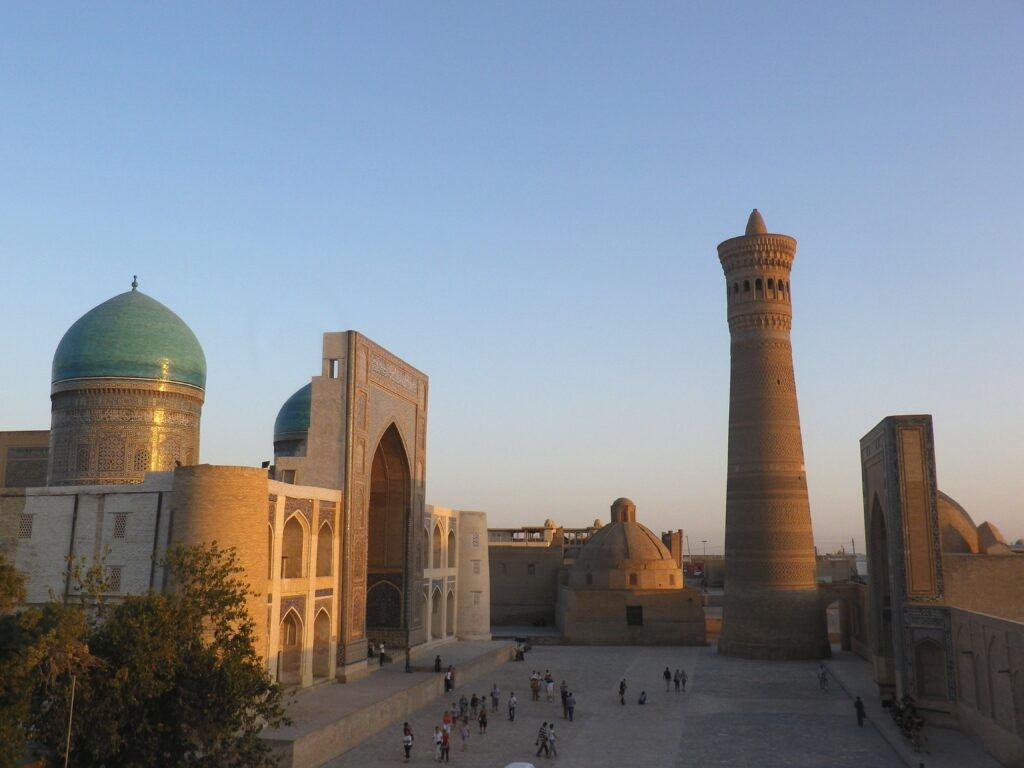Men in Black Blamed for Series of Murders in Northern Tajikistan
By Bruce Pannier
People in the Konibodom area of northern Tajikistan are locking themselves in their homes when darkness falls. Some are arming themselves. Others have left altogether out of fear.
There appears to be a serial killer or killers on the loose. At least 13 people have been murdered in their homes in or near Konibodom since late March, and local police seem baffled as to who is doing this or why.
It started with the killing of five members of the Sharipov family in late March.
Initially investigators believed the 65-year-old head of the house had killed his wife, daughter-in-law, and two grandchildren, then hanged himself, but they later determined someone broke into the home and the killer hanged the man to make it look like a domestic dispute and suicide.
On the night of April 16-17, someone broke into a home in the Gafurjon Ortikov neighborhood of Konibodom and killed the husband and wife who lived there. Police said the bodies of the victims, whom police did not identify, bore the signs of a violent death.
The most recent killings happened on the night of May 28-29 in the village of Sanjidzor, outside Konibodom.
Mahbuba Ahmedova and her two children were killed in their home and that same night, at a different house, the deputy director of a local school, Zulho Ibragimova, her brother and brother’s wife were killed. Local law enforcement said preliminary evidence showed all six people were strangled.
Locals speak about men in black who break into people’s homes at night and kill them.
A video was posted, purportedly from a surveillance camera in Konibodom, that shows a person with black clothing and a black hood or mask trying to break into a home.
Konibodom resident Mahsuda Kodirova said she and her daughter were sitting in the courtyard of their home a little after 10 in the evening on June 11, when a man in black clothing with a black mask suddenly appeared and approached them.
Kadirova said she and her daughter screamed and ran out into the street.
When the police arrived, they told Kadirova they had received many similar calls from terrified residents during the previous 48 hours.
Understandably, there is panic in Konibodom. Many of the men, especially the young men of Konibodom, are currently migrant laborers in Russia who are supporting their elderly parents, wives, and children back home.
The bodies of Mahbuba Ahmendova and her two children were found by neighbors after Ahmedova’s husband had been calling her from Russia and finally called a neighbor to go and check on his family.
Konibodom is near the border with Kyrgyzstan and the population of the city is mixed, mostly Tajiks, but many Kyrgyz as well.
Most of the victims have been ethnic Tajiks, but Ibragimova, her brother, and her brother’s wife were Kyrgyz.
The seeming randomness of the victims puts everyone on edge, at least everyone still there.
The Tajik news outlet Asia-Plus sent its reporters to Sanjidzor after the killings in late May. Those reporters said many homes were locked up. Their owners left to stay with friends or relatives in some other region of Tajikistan until the killers in Konibodom are caught.
Abdusalom Abdurahmonov, 71, remains in the Konibodom area. He said something of a neighborhood patrol has been organized in his community. He said every night, two to four men go out at night and walk around neighborhoods where the men have left to work in Russia, leaving women and children behind.
Ninety-year-old Ashurali Sobirov said his family sleeps with knives, axes, and pitchforks next to their beds. “We practically do not sleep at night,” Sobirov said; “we can’t go outside when we want.”
Police are intensifying their efforts to locate and apprehend the perpetrator or perpetrators. A special temporary headquarters has been established at the Sanjidzor school where one of the victims of the May 28-29 attacks, Zulho Ibragimova, was deputy director.
The teachers and children from that school have temporarily been sent to a different school.
Some 55,000 people live in Konibodom and there are several thousand more people living in surrounding villages.
Asia-Plus reported people are afraid of their own shadow, some are too afraid to go to the bazaar for food during the day.
There is no precedent for these serial murders, not only Konibodom, but across Central Asia. Until these men in black are caught, the residents of Konibodom area will watch the sun set every evening with a feeling of dread.








